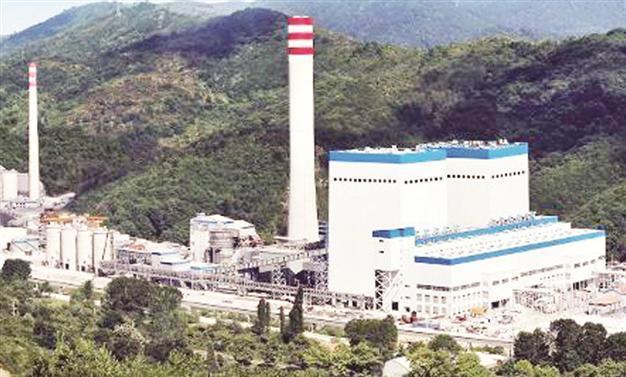Turkey trading coal for gas in electricity
ISTANBUL

The demand in licenses for natural gas-burning power plants is falling, the head of Turkey’s energy regulator has said. Hürriyet photo
The traditional wintertime smell of burning coal across Turkey appears set to become far more prevalent as the country turns to smoke-generating, coal-burning plants in an effort to break its large dependency on natural gas.
Applications for construction of gas-burning plants decreased, while those for local and imported coal power plants have risen, Turkey’s energy market regulator, EPDK, said yesterday. “Using local resources to lower the production costs, as well as the Energy Ministry’s new model that opened up coal reserves to exploitation by the private sector, contributes to creating considerable added value, which helps balance the current account deficit.”
The country has had annual investments worth almost 4,000 megawatts in the energy sector in the last five years, EPDK President Hasan Köktaş. said, adding that the stake of natural gas power plants in these investments had begun to fall.
Although investors’ building license applications for natural gas power plants had made up the major part among all applications in the energy sector, this number has considerably fallen because investors are withdrawing and canceling applications, according to officials.
Köktaş also said last year’s cancelation of incentives of around 20 or 21 percent for natural gas power plants had increased the cost of construction while reducing investors’ attention.
He said the policy was to lower the stake of natural gas in electricity generation, so the situation does not indicate any problem as far as they are concerned.
Turkey produces around half of its electricity from natural gas, a source for which it is largely dependent on Russia, Iran and Azerbaijan. The government is also harboring hopes for the planned Trans-Anatolia Pipeline (TANAP) project, which is slated to carry large amounts of Azeri gas to western Turkey, from where it will be transported to Europe. Investors have recently begun applying mostly to build coal power plants, including both local and imported coal, said Köktaş. He also said applications for imported coal power plants had jumped due to stocked raw material and resource diversification, adding that the costs of these plants were lower than gas.
Energy Minister Taner Yıldız announced Jan. 27 that there were 510 million tons of coal reserves worth $50 billion in the Ergene River Basin in the Thrace region of Turkey. The reserves will be opened for exploration within the next few days, he said. The Energy and Natural Resources Ministry recently discovered 1.8 billion tons of lignite reserves, enough to fuel a thermal power station generating 5,000 megawatts of electricity for 30 to 40 years, in the Central Anatolian province of Konya. Turkey also signed a deal with the United Arab Emirates to develop coal fields in the southern province of Kahramanmaraş.
Other optionsHowever, the European Association for Renewable Energy Turkey’s president, Tanay Sıdkı Uyar, said Turkey should primarily focus on energy efficiency by using minimal energy in transport, housing, industry and agriculture. Turkey could generate enough energy to satisfy all its energy needs if it builds wind, solar, biomass and geothermal power plants by 2020, added Uyar, the head of the Department of Energy at Marmara University, in a phone interview yesterday.
Zehra Aydoğan from Istanbul contributed to this report.
